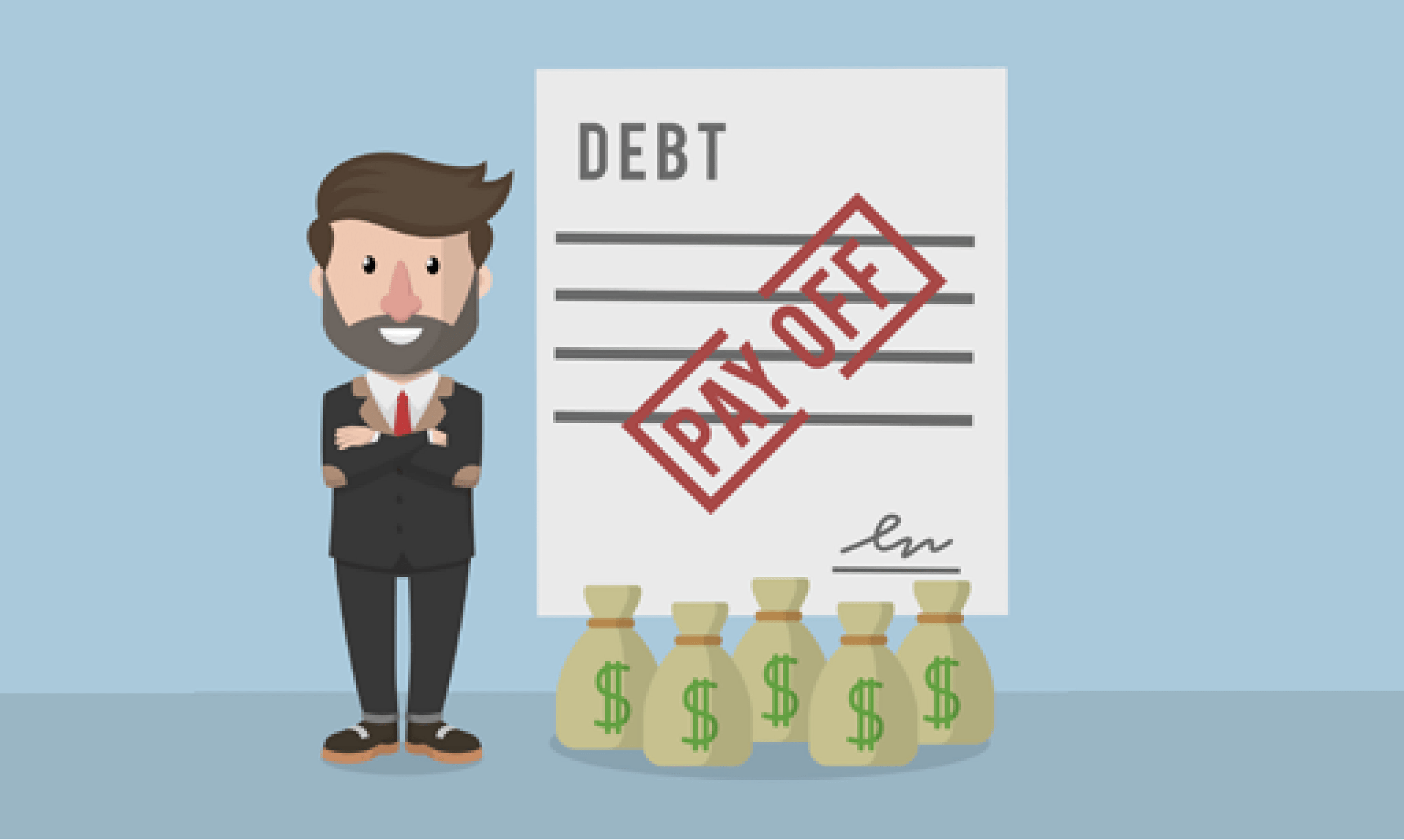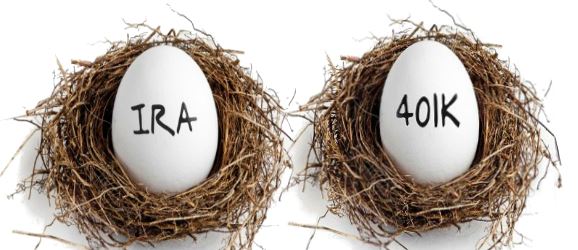How To Become Financially Stable: Follow These Steps
Everybody wants to be financially independent but when we look around us today, the rate of people who are below the stability line is far more than those who are financially independent. The reason for this is simple: not everyone can pay the task to be financially independent. Financial independence requires not just strict plans but a determination to stick to the plans. Financial stability is developed and maintained like every other good goal.
What Is Financial Stability?
This is simply a situation whereby you are spending far less than you earn and so have enough money for other purposes, you also have the resources to live the life you want. It is a situation whereby you are confident about your financial capacity and don't have to worry about how to pay your bills or live your desired life because you have the money to afford the luxurious life you wanted. When you are financially stable, you are debt-free. You have a steady source of income and have money saved both for your present and future goals. Financial stability means you are not afraid of emergencies and also operate a secured retirement plan. Financial stability is equivalent to financial peace.
Financial stability is not just about the money, it is more of the mindset. A financially stable individual is worry-free and confident of his or her financial strength. You are no longer bothered about how to raise money for one need or the other and so you could channel your strength into achieving all other goals.
As beautiful as financial stability is, many often wonder if it is achievable. The simple truth is, financial stability is achievable and there are lots of people who are financially stable. Although it might take some time and training, it does not entail self-deprivation as many view it to be. Attaining financial stability does not only make you financially independent, but it also has some immediate benefit. The opposite of financial stability is financial insecurity. This can be very difficult and pose a serious source of stress to an individual. Here are 10 steps to achieving financial stability.

- Understand That Your Most Important Investment is Yourself
The first place to invest in is yourself. You are the one who would be financially stable, hence it is advisable that you invest the time, energy and all the needed things for your personal growth. Invest in expanding your knowledge and your skills.
At the same time, do not neglect your health. Health bills are one thing that drains a savings account easily and this is often a product of neglect. Limit your stress, relax and rest well. Also, ensure that you eat well and exercise regularly. All of these and many more are ways you can grow yourself.
Read also: How to invest $10,000

- Create A Budget
This simply means that you take an honest look at how much you spend in comparison to how much you earn. It actually requires a whole lot of courage to estimate your debt and how much you are earning. However, doing this is the first step to being real to yourself. Budgets are tools that help you spend your money on things you should really spend them on and not on frivolities. If you aim to be financially stable, your budget would be the first area of your concern. Until you attend to this, other steps might not be able to do much. Here are some of the importance of budgeting
- A budget helps you to keep track of your expenses. With a budget, you know where your money is going
- A budget helps you to cut down your expenses to the necessary things.
- Without a budget, it is very easy to spend your money on things that you don't need based on the desire of the moment.
- Budgeting is a way to concentrate on the things you need.
- Also with a budget, you can spread out your remaining money into other important areas like buffer and emergencies
Essential things you should take note of in your budget plan:
- List out all your basic needs and debts like your bills, mortgage, rents, child support, and transportation. Also include debt payment like a car payment, credit card, student loan and so on.
- After listing out your essential needs, calculate your monthly income. This should also include all the other incomes you would be using to clear your bills. Your total income should include paycheck, dividend, deferred compensation, child support payments, inheritance and gifts, and retirement plans.
- Track how you are being paid. If for instance you are paid hourly, track your salary for a few weeks and calculate the average. This is to provide you with an average income figure you can use to create your budget.
- After all the calculations, subtract your expenses from your income. Your result would show whether you are spending above or below what you earn. If you are spending above what you earn, the next step is for you to prioritize your expenses. Cut out the things that are not too necessary and focus on the most pressing wants you can't do without.
- Having done all this, make a deliberate decision to cut down your expenses and ensure you are spending below what you earn. The reason for this is just for you to have some money set aside for debt and savings. You could even use the remaining money to build an emergency fund.

- Save On Your Transportation Expenses
According to the AAA report, the annual cost of maintenance to operate and own a car is more than $8,000. This figure is a total of both gas and car insurance. This exorbitant expenses can be saved or put into something else by selling your car or cutting down the number of times you use your car. You can opt for rideshare like Uber and so on.
- Reduce Your Utility Bill
The annual average money spent on utilities is $2,200. More than half of this money is spent on heating and cooling. To cut down the utility bill, improve the energy efficiency in your home. Also, replace incandescent light bulbs with more efficient compact fluorescent light bulbs (CFL) or light-emitting diodes (LED) bulbs. To reduce heating and cooling when no one is around, install a programmable thermostat. Do not forget to unplug all devices when no one is around. Also, lower the temperature on your hot water heater and air seal your home. All of these are measures to reduce the money spent on utilities alone.
Reduce the money spent on entertainment
Most often than not, this is the first place a lot of persons go to reduce their expenditure. Cutting down entertainment without affecting your lifestyle is relatively easy. First, reduce or eliminate your cable bill. Second, cancel your gym membership. Third, replace the eliminated lifestyle with less expensive ones like biking or running in the park, attending community cultural events and borrowing books and movies from the library. You can also cut down your newspaper or magazine subscription and read this in the library. Cut out other paid subscriptions like Amazon Prime, Netflix and so on.
- Save Money On Food
If you are the type who is used to getting take-outs and dinners, try to cook your meal once in a while. When you cook, you can take some of the leftovers for lunch instead of buying your lunch. This would help cut down the money you spend on take-out foods.
- Cut Your Insurance.
If you are very healthy and have no need for frequent doctor visits, it would be advisable that you change your insurance plan into a high-deductible plan. Make enquires on better rates on homeowners and auto insurance. Most times, it is even better to operate the two together as they could help you save more money. Also, purchase term life insurance instead of whole life or other types of permanent life insurance.
- Build A Buffer In Your Checking Account
This is simply a term used to advise that you leave some money untouched in your checking account. This amount should be within $800-$1000, or one or two weeks approximation of your total income. The reason for this is in case of unexpected expenses. With the money in your account, you would escape using your credit card or be charged an overdraft fee. For instance, in a situation whereby your rent payment gets debited a day or two before your paycheck is deposited to your account. With the buffer in your account, you won't be charged any overdraft or face an account overdrawn.
The buffer is compulsory even if you are in credit card debt. It is a practice that can help you reduce your debt or eliminate it. All you need to do is to channel all your extra income into paying your debt while you leave something like a buffer.
Although it would be very difficult to keep up with this practice if you are living from paycheck to paycheck, it can actually be possible if you reduce your expenses below your earn.
- Create an Emergency Fund
Before you think of using your extra income for debt payment or for retirement plans, think of having an emergency account. The major reason for this account is in case of emergencies like the loss of your job, illness or accident, big car repair or an unplanned traveling. An emergency fund would be used to cover all of these unexpected expenses and pull you through a tough time. With the emergency fund, whenever any of these needs arise, you are at peace knowing you already have a backup plan.
However, it is advisable that you keep your emergency fund in a separate account where it would yield more interest for you and an account where the likelihood of withdrawing it for other things is not possible.
Most time people skip emergency account in favor of a retirement account. In such a situation, when an emergency occurs, they are forced to withdraw from their retirement plan and use the money to attend to the emergency. This is usually very difficult if the individual is not up to 59½, the stipulated age for retirement. Removing money from your retirement account is not advisable. This is why it is very important to have an emergency account in case of unforeseen circumstances.

- Pay off Your Debt
This is another major obstacle to financial stability. Having evaluated the amount you spend with your budget list and have also set out some extra money for buffer and emergencies, the next thing to take care of is your debt. The first area to tackle in your debt is credit card debts. Pay off this debt and try as much as possible to avoid future ones.
If you have a student loan debt, ensure you make an extra payment to get rid of them as quickly as you can whether or not your loan is a 20or 30 years plan. The benefit of paying your debt sooner is that it helps you save better and even avoid paying too much interest. Debt is an impediment to financial peace.
The only exception here is the mortgage. If you have a mortgage, it is advisable that you take your time before paying it. In this case, prioritize all your debt and pay them off before attending to your mortgage.
- Invest for Retirement
This is an aspect many people are wary of, especially the youth. Youth feels there is no need to start investing for retirement which is still some decade away. This pervasive thinking is the major reason many average American still does not have a retirement plan today.
A retirement plan is not limited to age. It is one of the keys to financial stability because it guarantees you a pleasant future after your retirement. If you want to spend the days after your retirement visiting places that you have always want to, or you want to act as a volunteer in some organization, a retirement plan is good for you.
Prioritize your retirement plan and you would earn a pleasant future. The additional interest or advantage of starting a retirement plan early enough is that it helps you to earn more.

IRA and 401 k
The two most basic types of retirement plans are the IRA and the 401(k) plan. In some cases, some employers already opened this for their workers. If such is your situation, take advantage of the opportunity and enjoy the bonus that comes with employer matching. Employer matching is simply a situation whereby your employer matches his or her contributions with your own contributions to the plan. It is good you take advantage of this so as to avoid losing free money.
However, if your employer does not have any 401(k) plan for you, you can easily open an individual retirement plan (IRA).
Summary
Financial stability is simply the freedom to live the type of you want without having to worry about debts and other financial expenses. It is a way to secure your present and future goal. This might seem like an impossible feat but it is very much achievable. The 10 steps explained above are a guide that would put you on the path to financial stability


Be the first to comment!
You must login to comment